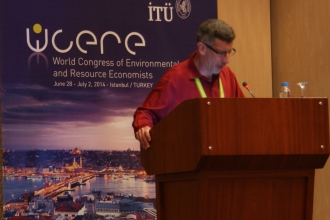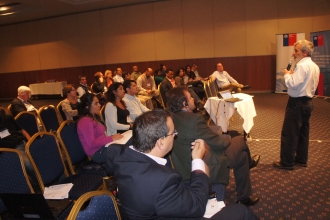The Impact of Common Property Right Forestry: Evidence from Ethiopian Villages
We use inverse probability weighting to examine the effects of a unique two-pronged common-property forestry program in the Gimbo district of Ethiopia, which includes Joint Forestry Management and improved non-timber forest product marketing efforts. The program was found to have affected household access to agricultural land, and, thus, reduced livestock holdings, due to program strictures. Furthermore, despite those reductions, there is evidence that the program had economically significant effects on other activities.




